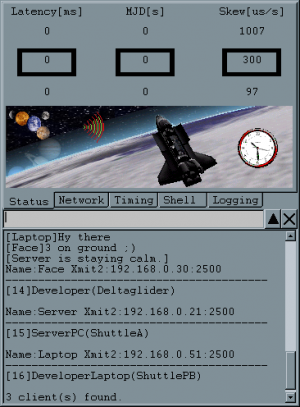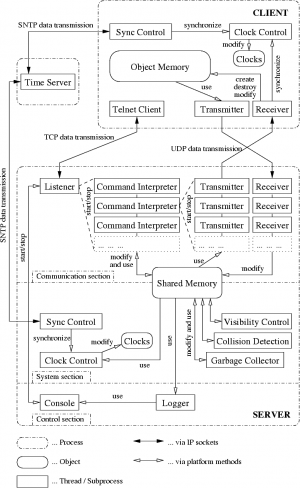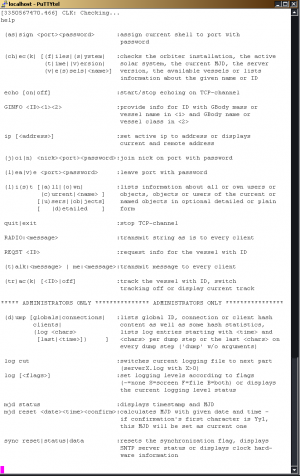OMP
Mangiona Sapere it Programma rai sport sat Contratto internazionale franchising Sconto offerta accessorio abbigliamento Bigliettino bomboniera battesimo Cumshot free Hotel bangkok Corriere adriatico B b napoli Stampa etichetta vino Epatite c Outlet toscana europe invest Grasse troie Prenotazione albergo strasburgo Refrigerazione frigorifero Pannello solare Autoricambi mercedes Porno bambine Tui it Hotel vercelli diabolik eva kant Vasca idromassaggio it Coconuda basket Agenzia di cuori solitari Bubble puzzle Seregno Sexi vip Niki bellucci video porno Primonumero it Pinarella di cervia Wwwwinxcom Sadomaso Carta da parati Ragazzi nudi gay Arval cosmetico Vis pathe Apartment dallas mover Katherine heigl Finestra scorrevoli Usrobotics it Umbria albergo Quotazione dipinti Conto corrente bancario Volo napoli new york eurofly Ww secondamano it Claudia antonelli nuda Cartina topografica spagna Sviluppo sostenibile ed economia Vola gratis it Big teets Hotel monte carlo Milf cruiser movie Trotto Noleggio barca vela sardegna Incontri ragazzi Cruise vacations gay in calore Raconti erotici graris Scolarette porno Ciccione pompini gratis Un posto al sole Conoscere ragazze Free avast antivirus download Gioco on line gioco Www ultrapassword com Car auctions Cellulare nec Clistere erotico Tv lolloscan Hotel sala convegno houston Housing milano Sinergy five Fotoromanzo erotico Codici playstation Oroscopo ariete oggi Nami hentai Testo canzoni coolio Casa vacanza affitto versilia Masterizzazione duplicazione cd dvd Racconti sexsi Meatholescom Orsi gay Dechatlon abbigliamento sportivo Nomi indiani Gallerie pompinare Foto rasate Orario autobus latina terracina Chiasso sexi Shy love anal 2 rivoluzione industriale Enciclopedia medica Darlina Racconto erotici gratis W unisa it Body ginnastica ritmica Luce pulsata Orologio tissot bussola Pianeta saturno Auto storiche griglia tefal maus gps tom tom go 300 googla autocad lt 2006 upg dvd alfie the maytal rem up pompei medea carbo load mandala sharp aquos 30 hp 500 a1 home husquarna kilo pairs hilton grd jvc eroina farmaco nutracker lightning jvc gz mc100 respira hunk lodging xxx manga m3 csl plugin for mac prof racconto www darktown com link whirlpool jt op kolwezi escort ancona muvo 256 fm michal b man b w 802 telefono cuffia microfono dress man scx 4100 ladybugs grace buckley emulet smackdwon norton system works premier 2005 dark funeral mouse con filo mazurka jurga www b6 dvd rw computer pixma ip english for economics mercedes 123 bungeejump gz mc500ex www proxify com penne isyankar gardaland com kimberly davies micro hi fi technics kiosque code ho0la trav porca tu mam swoj sklad limao com mel luxury resort vinnie jimi hendrix fire e2 gps cinema trash mr 1 082 a t c bmw 120d copt rem living new york escort transex swf nortek dvd dvd porno bawds.cn amd athlon64 3000 s939 mag 19 2 link reonda olpe kagul moonlight dance cerhi motard hyundai v773 proform 720 telecom servizi ps2 gt 4 bow man2 hill s k d sei gendarmi in fuga
|
Project home: OMP homepage |
OMP was announced on IRC as project to 'properly' execute a multi-player environment in Orbiter. Presumably this meant it would take care of more of the conventional space-simulator multiple player caveats and be more of an end-user oriented product than the previous, mostly experimental multi-player projects IRCMFD and Multiorb.
Using low-level TCP and UDP connections between machines, OMP may be considered a third-generation Orbiter multi-player system, although it's understood that each machine is still responsible for its own physics.
Version history
- V0.1 - 2005-09-06 Alpha release
- V0.1 - 2005-09-09 Patch 1: Buffer sizes has been increased to 4096 in order to allow longer startup messages on server. Documentation extended with checklists.
- V0.1 - 2005-09-10 Patch 2: Added jump feature - see documentation.
- V0.1 - 2005-09-11 Patch 3: (Hopefully) fixed the CTD bugs for various situations
- V0.1 - 2005-09-17 Patch 4: Fixed default server config file
- V0.1 - 2005-09-20 Patch 5: Server and Client log to file, too
- V0.2 - 2006-04-23 Second alpha release
- V0.2 - 2006-04-27 Patch 1: Fixed a problem with OMPDefault.cfg; fixed a server security breach; implemented a 5s delay of absolute-only transmission after a jump in order to allow re-jump and jump to another (far away) vessel of the same client
- V0.2 - 2006-05-02 Patch 2: Fixed a problem with server's sync controller, causing indeterministic CTDs after some time; added main thruster groups level transmission - now you can see particle streams of remote vessels and attitude bursts
- V0.2.9.6 - 2006-09-21 Public development closed, start of closed beta-testing. First release to beta-team
Status
As of August 2007, client software development is ongoing but closed to the public. The server software will be rewritten with .NET technology by means of a SourceForge project. At this time no public servers are known. Some Virtual space agencies used OMP for their missions before public development was closed.
The current development model consists of one private server - hosted by the author of OMP - and a beta-test team using the newest client snapshots.
Networking issues
From the 0.2.2 patch most NAT problems are worked around and OMP now sends 8 kb packets, so, virtually any type of internet connection can use, as well as host OMP.
Installing early versions
- Download the OMP 0.2 pack from here
- Extract the zip archive in the orbiter directory.
- Download the following files from here
- Orbiter plugin
- Default configuration for the Orbiter plugin
- Dummy scenario file for the automatic startup feature
- Put the orbiter plugin in Orbiter\modules\plugin directory. OVERWRITE THE PREVIOUS FILE!
- Put the Default configuration for the orbiter plugin in Orbiter\modules\plugin directory. OVERWRITE THE PREVIOUS FILE!
- Put the Dummy scenario file for the automatic startup feature in orbiter\scenarios OVERWRITE THE PREVIOUS FILE!
- Disable any firewalls.
- Open the orbiter launchpad, and under the modules tab, activate the OMPClient module.
- When you activate that module, a dialog will pop up. That's the OMP client.
- Click in the server text field. Delete the IP inside it, and put the server IP you are trying to connect.
- Click on standard.
- Under name, put the username you want. Put a password you can remember, and hit connect Orbiter.(Launch Orbiter changes to connect orbiter)
This should get most of the users connected, if they follow the procedures correctly. If you are still having problems connecting, try this alternative method:
- In the OMP client, click on Custom. The custom field should become active. Type your IP address in the custom field. If you don't know your IP address, get it here.
- Make sure ports 1500 and 2500 are forwarded, for both UDP and TCP
- Try reconnecting.
Features
- Remote vessel replication - see vessels of other clients inside your Orbiter session
- Dock support
- On-orbit and ground operations
- Integrated text-based chat
- "Jump" feature - jump to other vessels immediately to save time
- Orbiter Playback function works with OMP
- Support for different planetary systems
Technology
The concept of OMP is a client/server-based architecture with timestamped stream communication. The system uses SNTP timeservers to synchronize both clients and server to UTC. The 3 elements in the concept – client, server and timeserver – can be seen in figure to the right.
Not shown in this sketch is the communication between clients. This communication is similar to the UDP transmissions between client and server.
Basically, there is one server hosting a “universe” for all connected clients. This “universe” is a specific Orbiter configuration and should be known by every client. I.e., every client must know what Orbiter configuration it has to start before it connects to the server. This will be changed in later versions towards automatic negotiation in order to assure proper client/server configurations.
Clients start a TCP session with the appropriate server and can check out the server environment (users, information about vessels, scenario information etc.) similar to an IRC or telnet session. They actually join the multi-player session by sending an appropriate command followed by their name, password and receiving port. The server responds with the reserved receiving port on the server side. Clients can then start the actual simulation link.
The TCP session is used for transmission of text information of any kind to keep UDP packet sizes small. An open TCP session is therefore a must, if the client wants to see the right class (mesh) and name of its neighbor vessels, because this text information is transmitted via TCP rather than UDP with an automated negotiation sequence.
As soon as a client joins the multi-player session, it tries to synchronize the simulation’s MJD to the server’s MJD – being a fault tolerant average of all client’s MJDs. The server transmits this information by means of a Keep Alive UDP packet (KA). As soon as a client is in sync with the server regarding MJD (i.e. all celestial bodies are in proper position), all vessels hosted by the client are transmitted to the server by means of the absolute position w.r.t. the appropriate gravitational body with major influence.
The server decides, which vessel is in visible range of which other vessel and transmits the appropriate information by means of a Group Information UDP packet (GI). Each client processes it’s GI list and sends either an absolute or a relative State Information UDP packet (SI) to the neighbor client, depending on:
- the velocity of the vessel w.r.t. the gravitational body – currently everything below 1000 m/s is considered “non-orbital speed”, therefore absolute coordinates can be transmitted – and
- the availability of the target vessel (i.e., the vessel of the neighbor client) – if there wasn't an absolute coordinates transmission before, the target vessel is not visible to the client yet, therefore it can not calculate relative coordinates.
If a client receives an SI, it creates or updates the appropriate vessel with a generic name (based on the global ID of the vessel) and a default class. This default vessel will be exchanged with the proper name and class later on, if the client was able to gather the information from the server via TCP.
If streaming of SI or GI is interrupted (either because the server is offline, the neighbor client is offline or – less dramatically – the vessel is out of visible range) for more then 5 seconds, the appropriate vessel is removed.
In order to automate the above mentioned steps for login and logoff, the client software uses the following procedure for instant Orbiter scenario launch: After the multi-player session scenario has been generated with a special name (“$Multiplayer session$” ensures the scenario showing up as first entry in the scenario list in the launch pad), the system remote-controls the Orbiter launchpad to select that scenario and launches the simulation. The same remote-controlling ensures, that no other scenario can be launched in the meantime by disabling the appropriate buttons and controls.
See also
- Multi-player -- an overview of multi-player add-ons for Orbiter
- IRCMFD
- Multiorb
- Project Hamac


